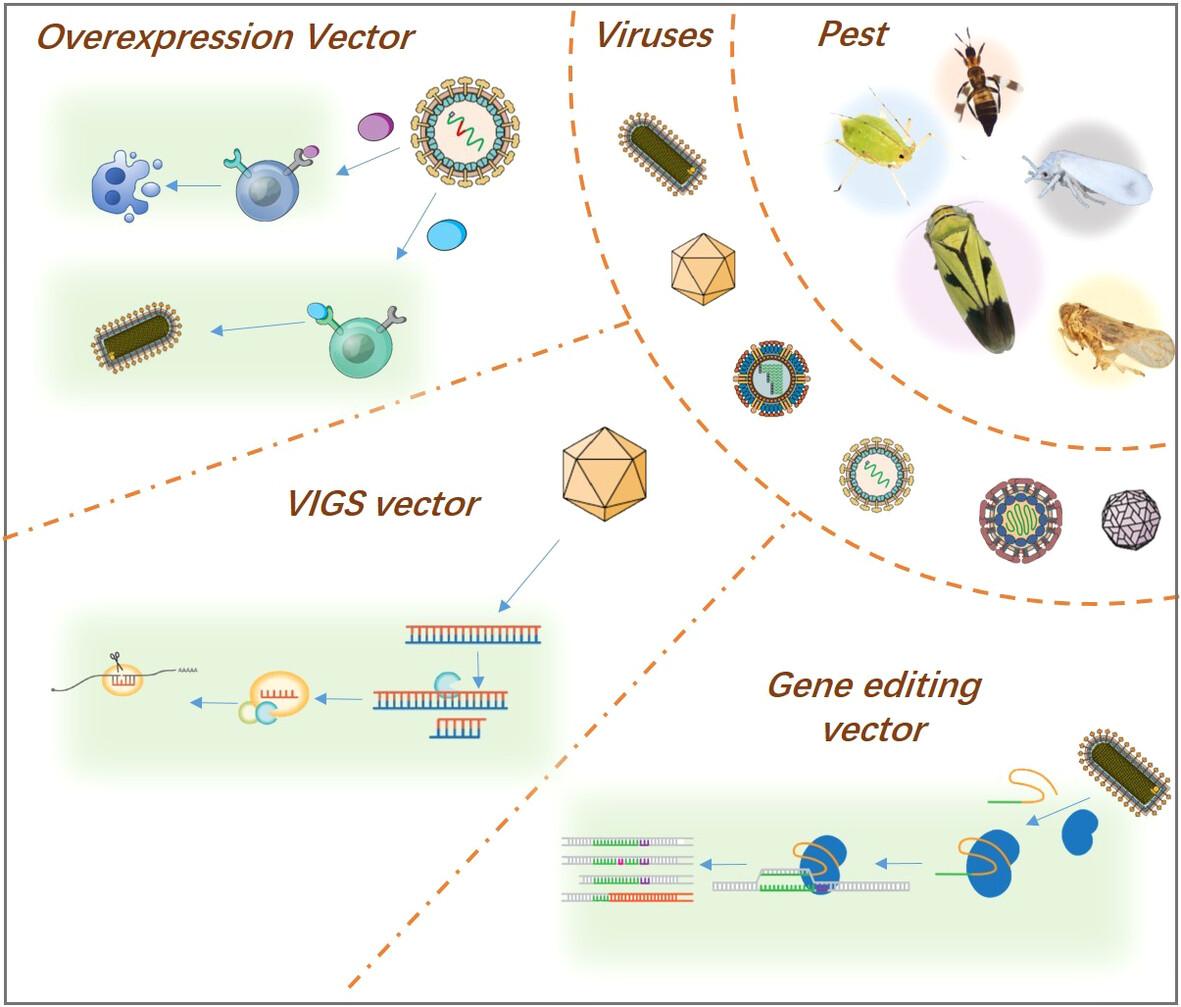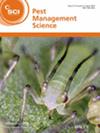下载PDF
{"title":"Leveraging insect viruses and genetic manipulation for sustainable agricultural pest control","authors":"Kai Sun, Kang Fu, Tao Hu, Xuping Shentu, Xiaoping Yu","doi":"10.1002/ps.7878","DOIUrl":null,"url":null,"abstract":"<p>The potential of insect viruses in the biological control of agricultural pests is well-recognized, yet their practical application faces obstacles such as host specificity, variable virulence, and resource scarcity. High-throughput sequencing (HTS) technologies have significantly advanced our capabilities in discovering and identifying new insect viruses, thereby enriching the arsenal for pest management. Concurrently, progress in reverse genetics has facilitated the development of versatile viral expression vectors. These vectors have enhanced the specificity and effectiveness of insect viruses in targeting specific pests, offering a more precise approach to pest control. This review provides a comprehensive examination of the methodologies employed in the identification of insect viruses using HTS. Additionally, it explores the domain of genetically modified insect viruses and their associated challenges in pest management. The adoption of these cutting-edge approaches holds great promise for developing environmentally sustainable and effective pest control solutions. © 2023 Society of Chemical Industry.</p>","PeriodicalId":218,"journal":{"name":"Pest Management Science","volume":"80 6","pages":"2515-2527"},"PeriodicalIF":3.8000,"publicationDate":"2023-11-10","publicationTypes":"Journal Article","fieldsOfStudy":null,"isOpenAccess":false,"openAccessPdf":"https://onlinelibrary.wiley.com/doi/epdf/10.1002/ps.7878","citationCount":"0","resultStr":null,"platform":"Semanticscholar","paperid":null,"PeriodicalName":"Pest Management Science","FirstCategoryId":"97","ListUrlMain":"https://onlinelibrary.wiley.com/doi/10.1002/ps.7878","RegionNum":1,"RegionCategory":"农林科学","ArticlePicture":[],"TitleCN":null,"AbstractTextCN":null,"PMCID":null,"EPubDate":"","PubModel":"","JCR":"Q1","JCRName":"AGRONOMY","Score":null,"Total":0}
引用次数: 0
引用
批量引用
Abstract
The potential of insect viruses in the biological control of agricultural pests is well-recognized, yet their practical application faces obstacles such as host specificity, variable virulence, and resource scarcity. High-throughput sequencing (HTS) technologies have significantly advanced our capabilities in discovering and identifying new insect viruses, thereby enriching the arsenal for pest management. Concurrently, progress in reverse genetics has facilitated the development of versatile viral expression vectors. These vectors have enhanced the specificity and effectiveness of insect viruses in targeting specific pests, offering a more precise approach to pest control. This review provides a comprehensive examination of the methodologies employed in the identification of insect viruses using HTS. Additionally, it explores the domain of genetically modified insect viruses and their associated challenges in pest management. The adoption of these cutting-edge approaches holds great promise for developing environmentally sustainable and effective pest control solutions. © 2023 Society of Chemical Industry.
利用昆虫病毒和基因操作实现可持续农业害虫控制。
昆虫病毒长期以来一直被认为是管理农业害虫的生物控制剂。尽管它们有前景,但宿主特异性、毒力和有限的病毒资源等挑战阻碍了它们的广泛应用。有效发现和利用昆虫病毒的需求对于可持续农业实践至关重要。随着高通量测序(HTS)技术的引入,新昆虫病毒的发现和鉴定显著加快,丰富了害虫管理的可用资源。此外,反向遗传学工具的进步使多功能病毒表达载体的开发成为可能,增强了昆虫病毒对目标害虫的特异性和效力。这篇综述全面概述了利用HTS鉴定昆虫病毒的方法,以及转基因昆虫病毒在害虫防治中的潜力。基因工程昆虫病毒为有针对性和有效的害虫管理提供了一条有前景的途径。尽管高温超导技术彻底改变了昆虫病毒的发现,但挑战依然存在。应对这些挑战并利用这些技术的潜力将是制定未来可持续农业管理战略的关键。这篇文章受版权保护。保留所有权利。
本文章由计算机程序翻译,如有差异,请以英文原文为准。


 求助内容:
求助内容: 应助结果提醒方式:
应助结果提醒方式:


